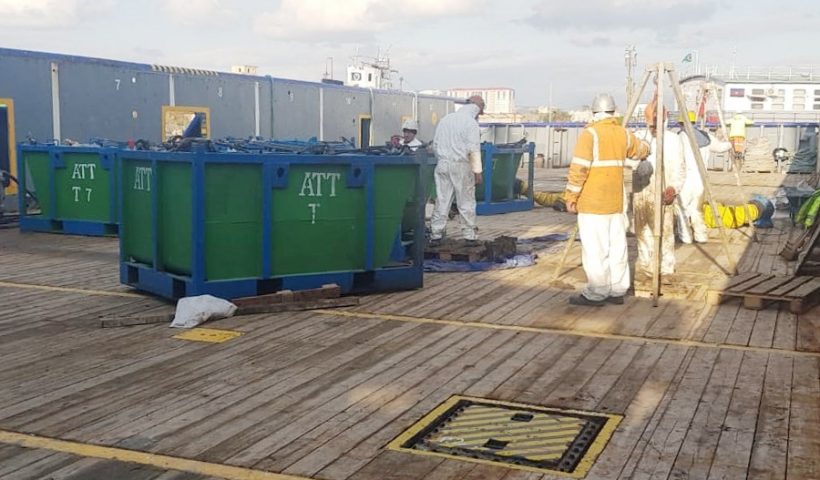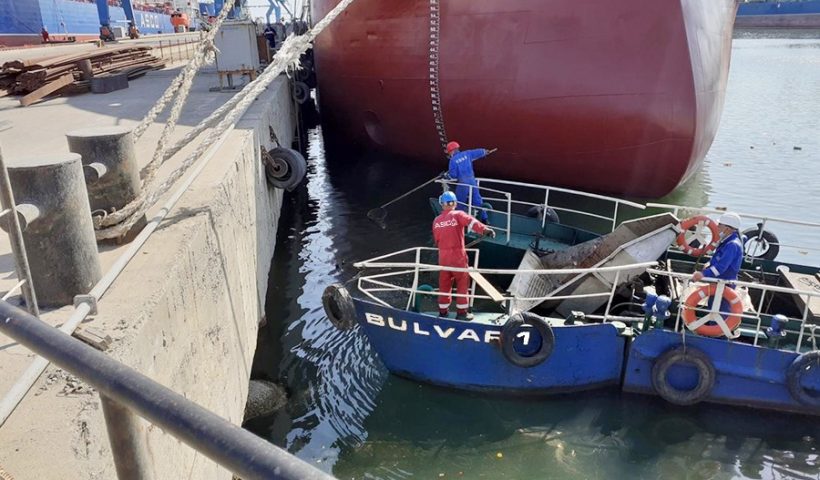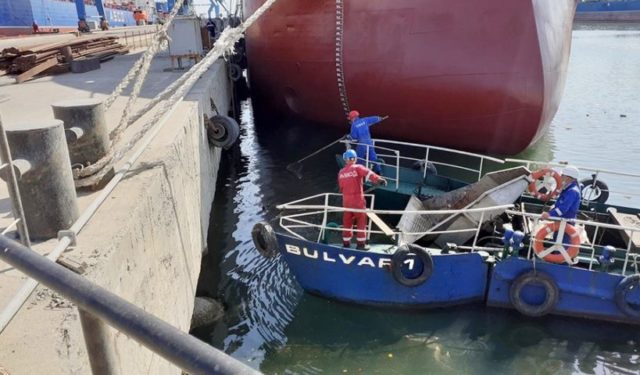Azerbaijan Caspian Shipping CJSC (ASCO) constantly pays attention to minimizing the environmentally negative impact of liquid and solid emissions resulting from the operation of ships and coastal facilities on water sources, soil and atmosphere. During operations, the ASCO takes necessary preventive measures within its own capabilities.
According to the results of 2020 first half-year period, 60.19 m3 of plastic, 360 m3 of food waste, 322.55 m3 of household waste (rags, paper-cardboard, glass, metal and other waste), 58.185 m3 of operational waste, 7.71 m3 of electronic waste, 77 m3 of sludge and oil residues, 2701 m3 of bilge water, 47848.65 m3 of wastewater generated at ASCO ships and territories, were disposed, on the basis of an agreement, to experienced professionals and certified institutions with technical resources.
During this period, 74.4 m3 of oil sludge formed at the bottom of the tanks, 7.119 tons of burnt mold sand, 615.23 tons of abrasive (a mixture of rust, paint, gravel and sand removed from the ship’s hull), 44413 tons of wastewater, 667 tons of bilge oil-containing water, 92.707 of lubricating oil, 3184.902 m3 of household waste (paper and cardboard, wood, rags, glass, metal, bottles, etc.), 575.39 m3 of food waste, 207.79 m3 of polymer and plastic waste, 81.01 m3 of oily and oil-containing waste, 42.3 m3 of various rubber waste, 10 batteries and galvanic cells, 387.45 m3 of operational waste, 14.5 m3 of electronic waste, 7.55 m3 of medical waste generated at coastline structures of ASCO were disposed of in a similar way.
ASCO has also disposed 33,99 m3 of objects of various sizes collected during the indicated period from the surface of the waters of the National Seaside Park and the area of coastal activities of the Company
In general, from January to July 2020, 1139.658 tons of ferrous scrap metal and 2.19 non-ferrous metal were sent to recycling.











